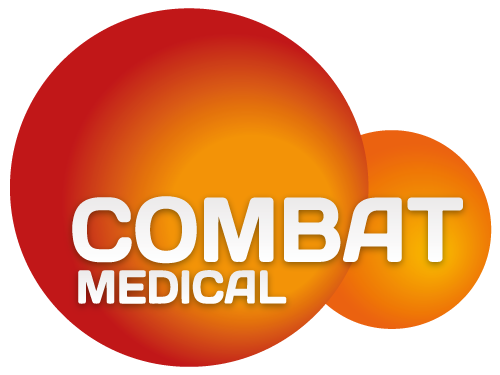Pancreatic cancer is one of the deadliest forms of cancer, often progressing silently until it’s too late to treat effectively. Recent studies indicate a rise in pancreatic cancer diagnoses, particularly among younger age groups. Therefore, understanding the risk factors, symptoms, and treatment options is vitally important for both the medical profession and the general public. November is Pancreatic Cancer Awareness Month, so is the perfect time to raise awareness and discuss advances in treatment, like the promising new Combat PRS+ therapy.
Age as a Key Risk Factor
Did you know that age is one of the biggest risk factors for pancreatic cancer? Most cases occur in people aged 50 to 80, with nearly half of diagnoses in individuals aged 75 or older. As we age, changes in our cells increase the likelihood of genetic mutations that can lead to cancer. This pattern is consistent with many types of cancer, where age amplifies the risk. However, it’s not just older adults who are at risk.
The Growing Concern Among Younger Age Groups
Surprisingly, cases of pancreatic cancer are on the rise among people under 55. Data from the U.S. National Program of Cancer Registration shows a faster increase in pancreatic cancer cases in younger populations than in older groups. This alarming trend brings up critical questions: Why are younger people suddenly more susceptible? Could lifestyle, environmental factors, or genetic predispositions play a role?
Pancreatic Cancer and Gender Differences
Pancreatic cancer does not affect all genders equally. Studies indicate that the incidence in younger women, in particular, is climbing faster than in men. In the UK, for example, pancreatic cancer rates in females aged 0-24 increased by 208% between 1993 and 2018. This difference highlights the need for more research to understand how gender may influence susceptibility to early-onset pancreatic cancer.
Why Is Pancreatic Cancer on the Rise in Young People?
The rise in early-onset pancreatic cancer is worrying, but the reasons remain unclear. Some theories point to changes in diet, rising obesity rates, and increased alcohol consumption as possible contributors. Other digestive cancers, such as gallbladder and colorectal cancer, are also becoming more common in younger individuals. This increase calls for a deeper examination of potential risk factors and lifestyle changes in recent decades that could be linked to pancreatic cancer.
The Importance of Awareness and Early Detection
Early detection of pancreatic cancer significantly improves treatment outcomes, but recognising symptoms early is challenging. Symptoms like jaundice, weight loss, and abdominal pain often appear only after the disease has progressed. Raising awareness is essential to help people understand potential warning signs and seek medical advice promptly if suspicious symptoms appear.
Innovative Treatments for Pancreatic Cancer
Traditional treatments like surgery, chemotherapy, and radiation can be challenging for patients due to side effects and limited effectiveness in late-stage pancreatic cancer. Innovations in treatment are long overdue, and the new Combat PRS+ device is one such advancement, offering hope for better-targeted and more effective therapy.
What is Combat PRS+?
Combat PRS+ is an advanced medical device designed to enhance the effectiveness of Hyperthermic Intraperitoneal Chemotherapy (HIPEC), a treatment that uses heated chemotherapy drugs. HIPEC is usually applied directly to the abdomen to kill cancer cells in a localised area, reducing the side effects associated with systemic chemotherapy. Combat PRS+ takes this process a step further by improving the way chemotherapy circulates within the abdominal cavity, increasing the treatment’s potency and precision.
How Combat PRS+ Enhances Cancer Treatment
The unique mechanism of Combat PRS+ allows it to circulate and agitate the chemotherapy drug chosen to specifically target pancreatic cancer cells. This enhanced circulation helps the drug reach cancerous cells more effectively while minimising damage to healthy tissue. By delivering a more potent dose directly to the cancer cells, Combat PRS+ offers a promising alternative to traditional chemotherapy methods that can be less effective in late-stage pancreatic cancer.
The Impact of Clinical Trials on Cancer Treatment
Clinical trials are a vital part of cancer research, offering opportunities to test new treatments like Combat PRS+ HIPEC in controlled environments. Combat Medical has recently launched a randomised, open phase II-III clinical trial to evaluate the effectiveness and safety of Combat PRS+ HIPEC after successful pilot studies. These trials not only offer hope for improved patient outcomes but also pave the way for innovative treatments to become widely available.
Challenges and Hope for Pancreatic Cancer Patients
While there’s much to be hopeful about, challenges remain in the battle against pancreatic cancer. Late-stage detection, limited treatment options, and the aggressive nature of the disease make it difficult to treat effectively. However, advancements like Combat PRS+ signal that progress is possible. Clinical trials and research into new treatment methods provide hope that in the future, more patients will have access to life-saving therapies.

